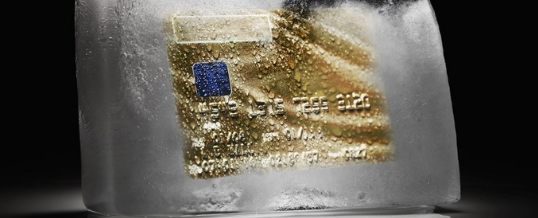
There is never a good time to have a problem with a bank account, but trouble with offshore bank accounts can be even more stressful. Opening an offshore bank account can typically be done online in minutes, underscoring the amazing versatility and convenience offered by international banking today, but if you have a problem with one of your offshore accounts, things can quickly escalate.
In the past decade or so, banks have strongly begun to follow a trend called de-risking. In this trend, we see that banks are more closely scrutinizing the accounts of their depositors and closing those that do not meet their criteria.
De-risking is a product of factors such as harsher regulations being put into place by central banks and governments. This is leading to offshore banks becoming more conservative than ever. It is also leading to another trend. We are seeing offshore banks increase their minimum deposit requirements, which yields another obstacle for depositors.
Simply put, the cost of compliance is changing offshore banking, and it could lead to your offshore bank account being abruptly restricted, suspended, or even terminated.
The Reasons Your Offshore Bank Account is Frozen, even Terminated
First, what could lead to these types of account disruptions? There are several things that could lead to this situation.
Reason #1: Low Account Balance
One common scenario is having a balance that is too low. Even though your balance is above the minimum deposit requirement, the bank could review your account and determine that your balance is too low or there’s not enough cash flow.
Reason #2: More Scrutiny for Business Bank Accounts
Keep in mind, it is often easier for individuals to bank offshore. If you have an offshore account for a company, you could run into another problem. Many banks want your company to be local to them. If you have set up a company in one jurisdiction but your offshore account is in another jurisdiction, this could lead to a review that ultimately results in your account being closed.
Reason #3: Your Offshore Company's Reputation
Another major factor is simply the quality of your company. The bank could determine that they do not know enough about your company or its reputation, so they decide to 'play safe' to avoid potentially dire problems in the future.
How Offshore Banks Freeze Your Account?
So, what does it look like when your offshore bank account is restricted, suspended, or terminated?
Offshore banks will not usually immediately terminate your account. Usually, there is a bit of a two-phase approach.
Phase #1: Documentation Request
In the first phase, the bank will ask you for documentation. This initial inquiry does not mean that your account will be closed; it simply means the bank is asking for clarification.
During this phase, your offshore account could be restricted or perhaps, in a few cases, suspended. For instance, you might find that your assets are temporarily frozen until you can provide the documentation that is being required.
Phase #2: Government's Review
In the second, more extreme phase, the review is turned over to the government. This process can take up to 6 months in some cases, and most likely, some features of your offshore account, such as transfers, could be suspended. Until the review is done and a decision has been reached, your assets will be frozen.
How to Prevent Frozen Offshore Bank Account?
As you might imagine, this is not desirable. It is never preferable to have frozen assets or an offshore account that’s in jeopardy. So, what can you do to prevent this situation?
Tip #1: Open Multiple Accounts
First, make sure you have multiple offshore bank accounts in place. This ensures that if one of your accounts is restricted, suspended, or terminated, you have other accounts to fall back on.
Tip #2: Be Transparent with Your Bank
The next thing is to always be transparent. Be communicative with your bank always. If you have set up an offshore banking account for your company, be prepared to answer questions in a way that makes your company look reputable. In this instance, you will want to be banking in the same jurisdiction where your company is set up because this will also enhance credibility.
If you are asked for documentation at any point, then you have got to be prepared to provide that documentation right away. On your end, this means keeping excellent books. Even if you do not necessarily need to keep documentation for taxes, you should keep contracts and other important paperwork for your company. If the bank needs supporting documentation, you need to be able to provide it.
Tip #3: Maintain a Healthy Account Balance
Lastly, be prepared to keep your balance significantly higher than the minimum deposit. This will help keep your offshore bank account off the radar of auditors.
Takeaway
When you open an offshore account, be prepared to provide more documentation than is required, and be ready to offer a higher deposit than the minimum required. Always be transparent and communicative. Doing these simple things will help ensure that your account does not get restricted, suspended, or even terminated
If you need to consult whether going offshore is worth the risk or not, contact us.
Read also "COVID-19 Pushed Offshore Banks to Go Digital"
MAY
2020

Table of Contents